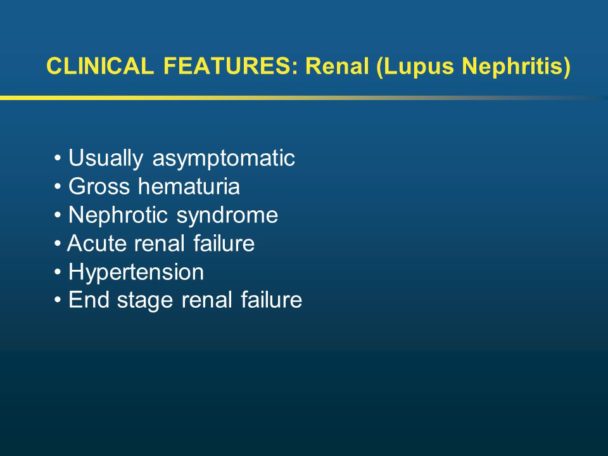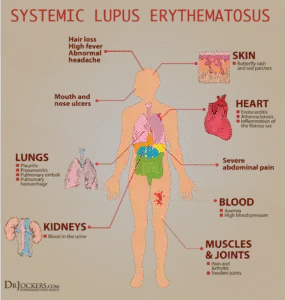Updated 5/6/2023
Lupus and heart disease is prevalent in people who have lupus. Lupus is an autoimmune disorder that has an unknown trigger that causes the person’s own body to attack its tissues.
This damage causes widespread inflammation and damage. There is no cure for Lupus, but treatments are available.
The most common type of Lupus is systemic lupus erythematosus (SLE). Lupus can be controlled with proper treatment.
Lupus Damages the Heart
Lupus can be from mild to life-threatening. The course of the disease depends on the patients level of compliance and treatments. There are many doctors that specialize in treating Lupus.
Lupus Heart Disease: Who Gets Lupus?
African American women are three times more likely to get Lupus than any other group. It is also more common in Latino, Asian, and American Indian women. African Americans tend to get Lupus at an earlier age. Lupus causes heart disease in African American women.
According to the Centers for Disease Control, “Lupus is an autoimmune disease that triggers inflammation in different tissues of the body. Autoimmune diseases happen when the body’s immune system attacks its own tissues.
The most common type of lupus is systemic lupus erythematosus (SLE), which affects different parts of the body, including internal organs.
Lupus Heart Disease: Can Lupus Cause Heart Problems?
We had an unfortunate 23-year-old brought to the hospital via 911 with complaints of shortness of breath and an elevated heart rate. She was diagnosed with lupus at the unfortunate age of 10 years old. This patient has been in and out of the hospital since she was a child. Systemic lupus causes heart disease.
According to the Journal of Clinical Immunology, “Patients with systemic lupus erythematosus have a significantly increased risk of cardiovascular events due to atherosclerosis. Traditional cardiac risk factors cannot fully explain this increased risk.
Recent evidence strongly suggests that atherosclerotic plaque is largely driven by inflammation and an active immunological response, in contrast to the long-held belief that plaque is a passive accumulation of lipids in the arterial wall”.

Lupus and Heart Failure
Q: What is lupus? A: Lupus, or systemic lupus erythematosus (SLE), is a chronic autoimmune disease that can affect various parts of the body, including the skin, joints, kidneys, heart, and other organs. It occurs when the immune system mistakenly attacks healthy tissues, leading to inflammation and damage.
Q: Can lupus cause heart failure? A: Yes, lupus can potentially lead to heart failure. The inflammation caused by lupus can affect the heart and its surrounding tissues, leading to various cardiovascular complications, including heart failure.
Q: How does lupus affect the heart? A: Lupus can affect the heart in several ways. It can cause inflammation of the heart muscle (myocarditis), the outer lining of the heart (pericarditis), and the blood vessels.
Over time, this inflammation can weaken the heart muscle and interfere with its ability to pump blood efficiently, eventually resulting in heart failure.
Q: What are the symptoms of heart failure in lupus patients? A: The symptoms of heart failure in individuals with lupus are similar to those of heart failure caused by other conditions.
These symptoms may include shortness of breath, fatigue, swelling in the legs or ankles (edema), rapid or irregular heartbeat, persistent cough, and difficulty lying flat due to shortness of breath.
Can Lupus Cause Heart Arrhythmia?
Lupus has caused this patient to have congestive heart failure, hypertension, and kidney failure. This patient is on dialysis three times a week. However, the patient has been somewhat non-compliant.

Therefore, when the patient missed her dialysis, she became fluid overloaded. Since the patient cannot urinate, and she is still drinking fluids, the fluid and toxins have nowhere to go.
Why does Lupus Cause Heart Failure and Kidney Failure

Because lupus is an autoimmune disease, oftentimes the heart can become inflamed. This is called myocarditis. Myocarditis can weaken the heart muscle; therefore, causing heart failure. However, with medications and antibiotics, the heart muscle can usually improve in many cases.
Lupus causes kidney failure because lupus causes the connective tissue inside the kidney to become inflamed. This inflammation can damage the kidneys and lead to kidney failure.
Other Symptoms of Lupus are:
- Acute skin changes such as the butterfly rash. In fact, the “butterfly” rash is one of the hallmark symptoms of Lupus. Often times, people go to the doctors because they have the rash over their rash/face.
- Chronic skin rashes
- Mouth ulcers on the tongue or roof of the mouth
- Hair loss or alopecia
- Sun intolerance: This is another hallmark symptom that brings people to the doctors’ office. When people diagnosed with lupus go into the sun, they can get dizzy and lightheaded. Just to be sure, there are also certain medications that will make you have sun intolerances such as hydralazine, HCTZ, and Benicar.
- Joint pain and tenderness on palpation of the joints
- Pleurisy or pericardial pain that lasts more than 3 days
- Renal impairment where the creatine levels are impaired
- New-onset seizures, or psychosis
- Anemia
- low white blood cell count
Abnormal Lab Values
- Elevated ANA levels
- the presence of Anti-Sm antibodies, Anti-dsDNA antibodies, Antiphospholipid antibodies
- Positive Direct Coombs test
Cardiac Manifestations of Lupus
Forty to sixty percent of Lupus patients have some pulmonary involvement called dry or wet pleurisy.
The most common cardiac manifestation of lupus is endocarditis, as well as pericarditis or myocarditis.
If the endocarditis of the heart is not treated, the person can go into heart failure. This is because the heart muscle gets very stiff and this will lead to cardiomyopathy. When the heart muscle gets stiff, it cant contract properly and the heart will start to fail.
Lupus Treatment
Conclusion
Lupus can be a challenging disease. However, treatment is advancing through leaps and bounds. It is best to be treated at a teaching hospital.
Frequently Asked Questions About Lupus and Heart Disease
1. Can a person die from Lupus?
2. What are the long-term effects of lupus?
My name is Phyllis Robinson MSN, RN. I have been a Registered Nurse for 27 years in the Cardiac Intensive Care Unit. I am passionate about cardiac care and heart disease. I also want this blog to be an educational tool that people can refer to for traditional and alternative treatment. I will blog on heart disorders such as high blood pressure, congestive heart failure, cardiomyopathy, and high cholesterol.
I received my Nursing degree from Baltimore Community College.
I went on to receive my Masters in Nursing from Walden University
I have worked for almost 30 years in Critical Care with a focus on heart health. I am an advocate of preventive healthcare.


